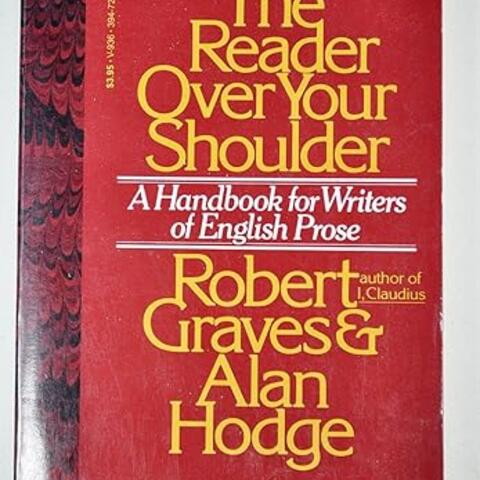Writing Center Wisdom
Notes from a Writer's Desk

In my almost three years of working at the Fellowships & Writing Center, I’ve worked with hundreds of students from a huge array of disciplines. I’ve learned so much from this experience, and I continue to learn every time I get the chance to interact with a writer. This, I believe, is the power of the writing center. It brings writers together to share ideas, to give support, and to find solidarity in the work of scholarly inquiry. Here in these dog days of summer, I find myself often reflecting on the wisdom I’ve learned from the FWC and other writing centers. Here are some of the things that stand out.
Writing loves company. Much like misery, writing might feel like it belongs in isolation, but truly it thrives in social encounter. Certainly, we need to do the work of putting pen to page, and many will be familiar with the experience of “getting in the zone” or “flow” where everything else in the world falls away as you fill the page. Yet, for most writers, the power and benefit of being with other writers and thinkers takes writing (and revision) to a new level. Whether it is sitting alongside others in a working group (go Writing Oasis!) or checking in regularly with a friend to talk out ideas, finding others to share in the early stages of the writing process builds confidence in our own ideas and skills, and helps to develop compassion both for yourself and your fellow writers.
Academic writing is dependent upon the notion that writing is a social endeavor, even if it masks this. Peer Review, the crowning feature of academic writing, requires the effort of others to make scholarly prose viable. And of course, there is the inherent trope that academics are always participating in a discourse. In other words, the social is there, if buried a bit. I like to remind my writers that when someone else gives them feedback—whether an advisor, a friend, a peer reviewer, or questioner at a conference—those commentators are doing essential work. Indeed, they are laboring for you. I find that reframing feedback as “work you don’t have to do” is nicer than thinking of it as criticism. The flip side is that writing centers provide opportunities to practice giving feedback, which hones an essential (but oft untaught) skill.
Revision is a gift. So many academics enter graduate school never having had to revise a paper. They were able to produce undergraduate writing in little more than one draft with perhaps some light checking for spelling and grammar. I first learned of the special power of revision as an undergraduate working as a peer tutor at the UConn Writing Center, but it took my own foray into graduate school to actually put what I was learning into practice. First drafts are like uncut gems, and revision is the process of cutting, shaping, polishing, and setting the stone so it really shines. But, as one of my favorite authors, Ann Patchett, reminds us, “writing must be separate from editing, and if you try to do both at the same time nothing will get done.”[1] I’ve come to position revision as a sort of “treat” for getting a first draft down on the page. I know I’m not alone in saying that it is more than tempting to work on existing writing and polish it up than it is to generate new prose. I like to keep my first drafts and my revision separate through a hodgepodge of note-taking methods (scraps of paper, occasionally an actual notebook, Google Keep, text files, sometimes even the Scrivener or MS Word doc I created for the specific purpose of that writing project), which I then revise into a formal shape by rewriting into a more “formal” space (Scrivener, a new MS Word Doc, etc.). I repeat this process until I have the semblance of a first draft, and only then do I go back for real Revision.
The struggle is where the work is. I’m not saying not to ask for a helping hand (yes, yes, please ask for help! Find a writing buddy, talk to a friend, visit the Writing Center!). But at the same time, don’t totally run away from the struggle, either by avoiding it or by turning to generative AI. As someone who has taught workshops on how we can use generative AI to our benefit as academic writers, it is still something that I believe must be done with care. It is too easy to lose ourselves and our voice to a robot and it is getting easier still. Rather, we find our voice by working through the difficult bits of thinking and writing. As Margaret Renkl reflected on a marathon brainstorming session with her graduate advisor: “The search for the right word to fill the right place can occupy a lifetime. And I’m convinced, make a self along the way.”[2] Her point was that it is in the work where we find the craft. As hard as it is to resist the urge to google everything (or gen AI everything; can that be a verb now?), I have found that when I don’t rely on those methods, when I “unplug” and let my own brain do some of that heavy lifting, I’ve already begun on the path toward writing what I want (or need) to write. This is nothing to say, of course, about the distraction of our devices and the havoc they wreak on our writing minds (and lives).[3]
Perhaps the most important thing I’ve learned from my time in writing centers is that to be a writer is a constant process of discovering yourself. If you want to have a writing routine (which I do highly recommend, as do the wise Robert Boice and Wendy Belcher), then you have to know something about how your mind and emotions work. It could be something as simple as, “I write best in the morning.” But you should also ask yourself how you best overcome challenges. Is it by seizing them (“eat the frog” a la Mark Twain)? Or by building momentum during the day with smaller tasks? How does it all make you feel? The feelings part, now that’s crucial. Being a writer means being in a relationship with writing, and so we’ve got to find ways to feel good about that relationship (a.k.a. ourselves); otherwise, we’ll never write. For me, it is habit. When I write in the morning, I feel better the rest of the day (even if I wrote for a tiny, tiny bit of time). When I don’t write in the morning, I feel completely untethered (I’ve written about this before). Like physical exercise, it can be hard to get started after a period of dormancy, but once I do, the overall good feeling seems to flood my system. It doesn’t take much to remember that if I want that good feeling to keep going, I need to keep going.
We practice being writers, which means we can practice being bad writers (as in writers who feel bad about writing) or we can practice being good. My field is music, and I started out as a performer, trained on the clarinet. My college teacher, Curt Blood, now retired from the Hartford Symphony Orchestra, would always say to his studio, “Practice doesn’t make perfect. Perfect practice makes perfect.” Of course, perfection for writers and musicians is only attainable if we accept that it isn’t, but strive for it anyway. The point is, though, that if we practice the wrong things, then we undermine our ability to achieve the right things. If you practice not writing every day, you’ll get really good at not writing, and probably really good at feeling bad about writing. So the challenge is discovering how to feel good about writing and to practice cultivating those good feelings. Where do we find those good writing feelings? In our friends, in our academic peers, and maybe even in writing centers.
In the previous blog post about summer reading, I extolled the importance of reading as an essential act of knowledge creation. Amid the attacks on not just higher education but on thinking and inquiry and science and discovery and facts and debate, it can be difficult to find significance in our own work, and even in the act of writing. If the robots are going to replace us, then what’s the point? But I say, don’t give up. Strive for that unattainable perfection, find your writing groove, make a friend who will help you work through your ideas. Our commitment to the work of knowledge production is one of the best ways we can fight the good fight. Your writing is significant because your ideas are significant, and that is your power. Nurture it.
[1] https://www.newyorker.com/magazine/2021/03/08/how-to-practice
[2] https://www.nytimes.com/2025/02/24/opinion/i-human.html
[3] More Ann Patchett for you: https://www.nytimes.com/2024/10/15/opinion/ann-patchett-regret-email.html
Banner image: Books and Scholars' Accoutrements (Ch’aekkŏri), 2014. Harvard Art Museums/Arthur M. Sackler Museum, Ernest B. and Helen Pratt Dane Fund for Asian Art and through the generosity of the Ralph C. Marcove International Understanding Through Arts and Crafts Foundation, Inc. and Christina Marcove.
Ready to book an appointment with FWC staff? Access the FWC intake form.
Get the Latest Updates
Join Our Newsletter
Subscribe to Colloquy Podcast
Simplecast




